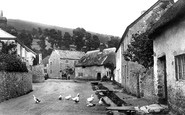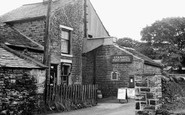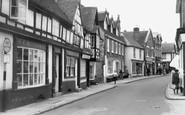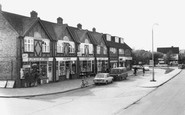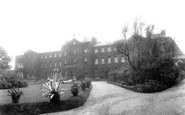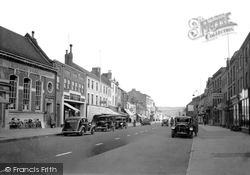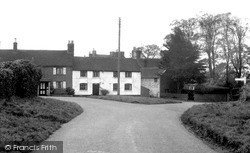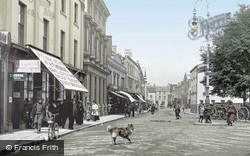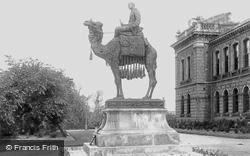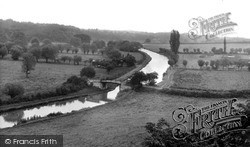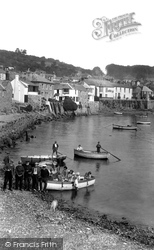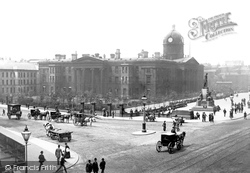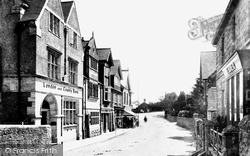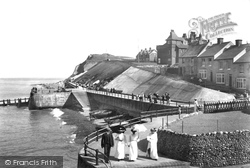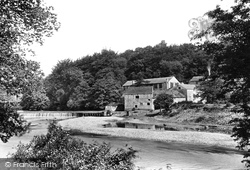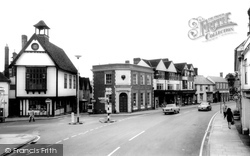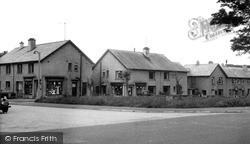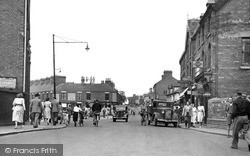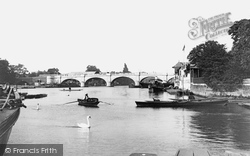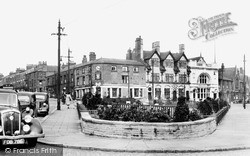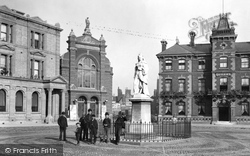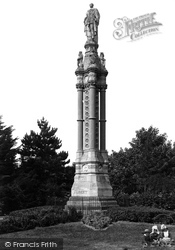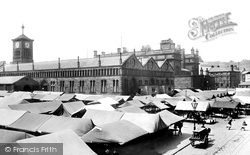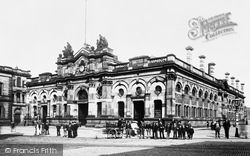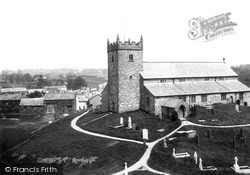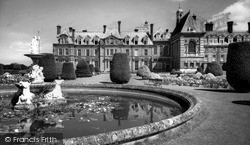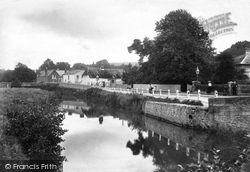Merry Christmas & Happy New Year!
Christmas Deliveries: If you placed an order on or before midday on Friday 19th December for Christmas delivery it was despatched before the Royal Mail or Parcel Force deadline and therefore should be received in time for Christmas. Orders placed after midday on Friday 19th December will be delivered in the New Year.
Please Note: Our offices and factory are now closed until Monday 5th January when we will be pleased to deal with any queries that have arisen during the holiday period.
During the holiday our Gift Cards may still be ordered for any last minute orders and will be sent automatically by email direct to your recipient - see here: Gift Cards
Places
11 places found.
Those places high-lighted have photos. All locations may have maps, books and memories.
Photos
54 photos found. Showing results 1,441 to 54.
Maps
494 maps found.
Books
25 books found. Showing results 1,729 to 1,752.
Memories
9,978 memories found. Showing results 721 to 730.
The Ship Inn At Axmouth.
The Ship Inn can be seen to the left of the photograph; just beyond the wall. My great-great-grandparents, John and Mary Real (born in Axmouth in 1821 and 1824 respectively) were licensees of The Ship Inn, Axmouth, at the time ...Read more
A memory of Axmouth in 1960 by
Newtonheath Loco Football Ccub
I remember sneaking into the match by going past the lodging house on Warden Lane and going by the railwayside and through a hole in the fence that the railway men had made so that they could watch ...Read more
A memory of Newton in 1950 by
Alan & Hilda
Alan and Hilda Slater were my Uncle and Aunty and lived at the post office for many years and were quite possibly the funniest people I ever knew. Stanhill Post Office is reputedly haunted and Uncle Alan took every opportunity to use the ...Read more
A memory of Stanhill by
Ratfyn Power Station
In the 1950s I was in the Royal Engineers and came over from Germany to our school of military engineering at Chatham where we did a course in electrical power stations. We were then posted to Bulford barracks, and did our ...Read more
A memory of Bulford in 1954 by
Remembering Byfleet
I was born in Byfleet in 1950. We lived in Binfield Road. Later I moved to the hotel that was built where the village green is now. My mother Beatrice Stenning was the housekeeper, cook, maid and everything in between. My dad ...Read more
A memory of Byfleet by
The Long Family Hindringham
I have been researching my family history and have traced the family tree back to Robert Long, born in Hindringham in 1798. I would be interested to hear from anyone who has been carrying out genealogical research into the same family. David Long.
A memory of Hindringham by
Fleur De Lys
My mother grew up in Lowsonford, her parents owned the Fleur de Lys, it was a wedding present from my great-grandad. My grandmother, Mrs Elizabeth Tarplee, started to make steak pies at the pub for the passing boats. My mother had a ...Read more
A memory of Lowsonford in 1920 by
West Street Shops
Shops on West Street in the 1960s were left to right: Merritts the butcher next door to Blackiston the butcher, famous for the specialty sausages, also had its own slaughterhouse and in the back garden an Anderson shelter used by ...Read more
A memory of Midhurst in 1960 by
12 Glebe Avenue Kolordek
This picture is just too small to see if my parents' shop - Kolordek - is illustrated in the row. We moved away around 66/67. Vaiseys had the grocers next door - I was friends with their daughter, and the grocer's next to ...Read more
A memory of Ickenham in 1962 by
Fond Memories
I remember St Faith's hospital very well. I was the Head Porter there for a number of years until it was closed down. I met my wife there. She was a catering assistant. We were engaged with two other couples in the social club.That ...Read more
A memory of Brentwood in 1985 by
Captions
2,019 captions found. Showing results 1,729 to 1,752.
This photograph looks eastwards along East Street from the southern pavement, with the Midland Bank opposite (left).
The parkland of 18th-century Welton Place sweeps south to the north bank of the Grand Union Canal, in its cutting leading to the east portal of the Braunston Tunnel.
The National Provincial Bank commenced business in Bridgend in 1835. There is a plaque in Bridgend library to honour Dr Richard Price of Tynton Farm in the Garw valley.
This 1890 bronze statue of General Gordon of Khartoum on camel-back was the work of E Onslow Ford, and commemorates his illustrious career. It was erected five years after the general's death.
The place name dates back to the 11th century, but the original village fell into disuse and no trace of it remains today.
The midships wheel, lying fore and aft, was used to make easier the back-breaking task of hoisting sails.
A public bath house was also part of the block; as well as serving the people of the back streets around Piccadilly, it meant that patients could be given a bath before entering hospital.
The bank is now the Nat West, and beyond the right-hand buildings is the modern Fernbank Shopping Centre.
The gentleman proudly escorts three elegant ladies dressed in white; other people further back are intrigued by the crab boats, which were probably made by Leonard Lown or his son Henry.
This is one of two mills on the north bank of the Wharfe.
By the early 1930s the building had deteriorated, and in 1935 Mr C J M Welsh bought it for £600 and set about careful restoration to bring it back as near as possible to its original condition.
Hest Bank remains the starting point for Guide Cedric Robinson to lead groups safely across the treacherous quicksands of Morecambe Bay.
It has trap doors for direct loading into the narrow barges, or 'cuckoos' as they were known, and a crane on the canal bank. It is now part of the Lock Tavern, which fronts the road.
This building, a fine example of a Georgian town house, is now Barclays Bank.
From the mid 20th century the Thames was used less for industry, with fewer barges and tugs and fewer wharves for industry on its banks, giving ample room for sailing and pleasure boats.
The Assheton Arms, an old coaching inn, is at the bottom of Long Street, with the Williams Deacons and Salford Bank, designed by Edgar Wood, to its right.
Further downstream and opposite Hampton Court, Molesey Lock is photographed from Riverbank, the busy A3050 along the Surrey bank of the River Thames.
This evocative late Victorian view with the youths posing beside Queen Victoria's Golden Jubilee Statue is very much an archive photograph: only the building to the left, a bank, now the
At the north end of the park the focus is a statue of Albert, Queen Victoria's Prince Consort, who had died in 1861 and in whose honour the estate had been named.
Here we see the Market Hall (or House) from the rear, and the back of the Town Hall; its 20ft-high wall guards a courtyard.
There was a corn market in Accrington as far back as the 16th century.This Market Hall was opened on 23 October 1868 by Samuel Dugdale, Chairman of the local Board of Health.
It contains Tudor murals and painted texts on its walls, and its parish registers go back to the same period.Hawkshead is one of the prettiest Lakeland villages; it stands at the head of Esthwaite
Kinmel Hall stands on a site said to date back to 1311, but this present country house emerged from the ashes of a former mansion destroyed by fire in 1848.
This is East Bridge, at the eastern end of East Street (far right), looking eastwards from the north bank of the River Asker.
Places (11)
Photos (54)
Memories (9978)
Books (25)
Maps (494)



